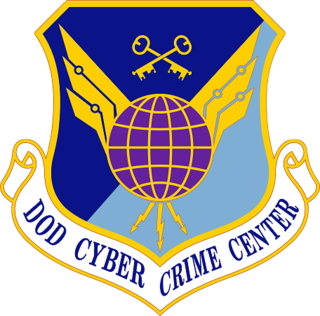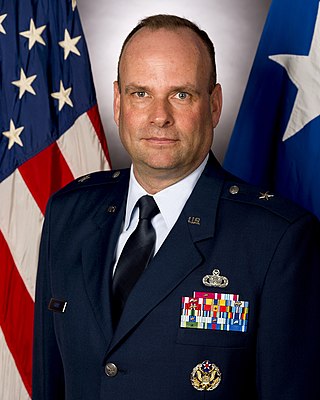
The SANS Institute is a private U.S. for-profit company founded in 1989 that specializes in information security, cybersecurity training, and selling certificates. Topics available for training include cyber and network defenses, penetration testing, incident response, digital forensics, and auditing. The information security courses are developed through a consensus process involving administrators, security managers, and information security professionals. The courses cover security fundamentals and technical aspects of information security. The institute has been recognized for its training programs and certification programs. Per 2021, SANS is the world’s largest cybersecurity research and training organization. SANS is an acronym for SysAdmin, Audit, Network, and Security.

Cybercrime encompasses a wide range of criminal activities that are carried out using digital devices and/or networks. These crimes involve the use of technology to commit fraud, identity theft, data breaches, computer viruses, scams, and expanded upon in other malicious acts. Cybercriminals exploit vulnerabilities in computer systems and networks to gain unauthorized access, steal sensitive information, disrupt services, and cause financial or reputational harm to individuals, organizations, and governments.

Computer forensics is a branch of digital forensic science pertaining to evidence found in computers and digital storage media. The goal of computer forensics is to examine digital media in a forensically sound manner with the aim of identifying, preserving, recovering, analyzing and presenting facts and opinions about the digital information.

The United States Naval Criminal Investigative Service (NCIS) is the primary investigative law enforcement agency of the U.S. Department of the Navy. Its primary function is to investigate major criminal activities involving the Navy and Marine Corps, though its broad mandate includes national security, counterintelligence, counterterrorism, cyberwarfare, and the protection of U.S. naval assets worldwide. NCIS is the successor organization to the former Naval Investigative Service (NIS), which was established by the Office of Naval Intelligence after the Second World War.

The Air Force Office of Special Investigations is a U.S. federal law enforcement agency that reports directly to the Secretary of the Air Force. OSI is also a U.S. Air Force field operating agency under the administrative guidance and oversight of the Inspector General of the Department of the Air Force. By federal statute, OSI provides independent criminal investigative, counterintelligence and protective service operations worldwide and outside of the traditional military chain of command. Proactively, OSI identifies, investigates, and neutralizes serious criminal, terrorist, and espionage threats to personnel and resources of the Air Force, Space Force, and the U.S. Department of Defense, thereby protecting the national security of the United States.
Shawn R. Carpenter is a cyber security analyst and whistleblower who tracked down a Chinese cyberespionage ring that is code-named Titan Rain by the FBI. He came to national attention when his story was reported on in the September 5, 2005 issue of Time magazine.

CSI is a media franchise of American television series created by Anthony E. Zuiker. The first three CSI series follow the work of forensic scientists as they unveil the circumstances behind mysterious deaths, while the fourth series, CSI: Cyber, emphasizes behavioral psychology and how it can be applied to cyber forensics.

Howard Anthony Schmidt was a partner with Tom Ridge in Ridge Schmidt Cyber LLC, a consultancy company in the field of cybersecurity. He was the Cyber-Security Coordinator of the Obama Administration, operating in the Executive Office of the President of the United States. He announced his retirement from that position on May 17, 2012, effective at the end of the month.
GhostNet is the name given by researchers at the Information Warfare Monitor to a large-scale cyber spying operation discovered in March 2009. The operation is likely associated with an advanced persistent threat, or a network actor that spies undetected. Its command and control infrastructure is based mainly in the People's Republic of China and GhostNet has infiltrated high-value political, economic and media locations in 103 countries. Computer systems belonging to embassies, foreign ministries and other government offices, and the Dalai Lama's Tibetan exile centers in India, London and New York City were compromised.

The Department of Defense Cyber Crime Center (DC3) is designated as a Federal Cyber Center by National Security Presidential Directive 54/Homeland Security Presidential Directive 23, as a Department of Defense (DoD) Center Of Excellence for Digital and Multimedia (D/MM) forensics by DoD Directive 5505.13E, and serves as the operational focal point for the Defense Industrial Base (DIB) Cybersecurity program. DC3 operates as a Field Operating Agency (FOA) under the Inspector General of the Department of the Air Force.
Eoghan Casey is a digital forensics professional, researcher, and author. Casey has conducted a wide range of digital investigations, including data breaches, fraud, violent crimes, identity theft, and on-line criminal activity. He is also a member of the Digital/Multimedia Scientific Area Committee of the Organization for Scientific Area Committees. He helps organize the digital forensic research DFRWS.org conferences each year, and is on the DFRWS Board of Directors. He has a B.S. in Mechanical Engineering from the University of California, Berkeley, an M.A. in Educational Communication and Technology from New York University, and a Ph.D. in Computer Science from University College Dublin.
Cyberwarfare is the use of computer technology to disrupt the activities of a state or organization, especially the deliberate attacking of information systems for strategic or military purposes. As a major developed economy, the United States is highly dependent on the Internet and therefore greatly exposed to cyber attacks. At the same time, the United States has substantial capabilities in both defense and power projection thanks to comparatively advanced technology and a large military budget. Cyber warfare presents a growing threat to physical systems and infrastructures that are linked to the internet. Malicious hacking from domestic or foreign enemies remains a constant threat to the United States. In response to these growing threats, the United States has developed significant cyber capabilities.

Kevin J. Jacobsen is a United States Air Force retired brigadier general who served as the 16th Commander of the Air Force Office of Special Investigations (AFOSI), Quantico, VA. This field operating agency is responsible for providing commanders of U.S. Air Force activities independent, professional investigative services regarding fraud, counterintelligence, and major criminal matters. The investigations are conducted by a worldwide network of military and civilian special agents stationed at major U.S. Air Force installations and a variety of special operating locations.

United States Army Counterintelligence (ACI) is the component of United States Army Military Intelligence which conducts counterintelligence activities to detect, identify, assess, counter, exploit and/or neutralize adversarial, foreign intelligence services, international terrorist organizations, and insider threats to the United States Army and U.S. Department of Defense (DoD).

CSI: Cyber is an American police procedural drama television series that premiered on March 4, 2015, on CBS. The series, starring Patricia Arquette and Ted Danson, is the third spin-off of CSI: Crime Scene Investigation and the fourth series in the CSI franchise. On May 12, 2016, CBS cancelled the series after two seasons.
The following outline is provided as an overview of and topical guide to computer security:

The second and final season of CSI: Cyber premiered on October 4, 2015. The series stars Patricia Arquette, James Van Der Beek, Shad Moss, Charley Koontz, Hayley Kiyoko, and Ted Danson.
William "Chuck" Easttom II is an American computer scientist specializing in cyber security, cryptography, quantum computing, and systems engineering.

Keith M. Givens is a retired United States Air Force Brigadier General who served as the 17th Commander of the Air Force Office of Special Investigations (AFOSI), Quantico, Virginia. As the AFOSI Commander, Givens oversaw AFOSI's worldwide network of over 2,000 military and civilian special agents and over 500 unsworn members stationed at major Air Force installations and a variety of worldwide special operating locations.













